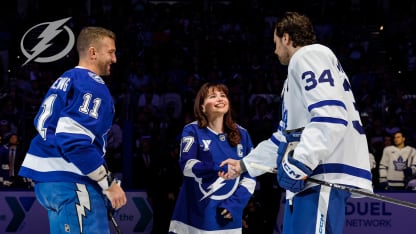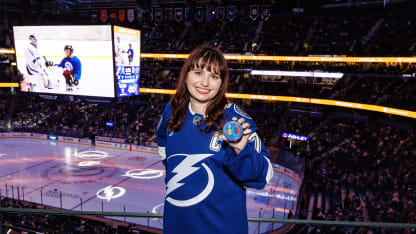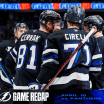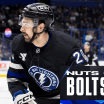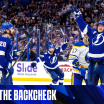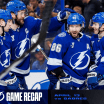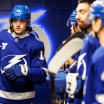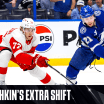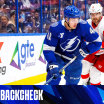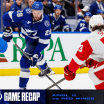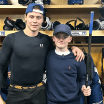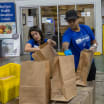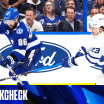The Lightning and JABIL hosted their annual Neurodiversity Night game this week, spotlighting a multitude of individuals and organizations breaking ground in the neurodivergent community.
At the literal center of it all, lit up under the house lights with Luke Glendening and Auston Matthews, was ceremonial puck drop guest Haley Moss.
Moss is an acclaimed author, artist, keynote speaker and attorney, all of which she’s pursued—and mastered—by the age of 30. Her largest and significant focal point, however, is autism advocacy. Moss was diagnosed with autism at three years old. And today, her life’s work is dedicated to helping our world understand disability inclusion and neurodiversity.
Moss is also a born-and-raised South Floridian where she still resides in Miami, FL. She attended the University of Florida where she graduated with two bachelor’s degrees in three years. And after a casual stint at the University of Miami School of Law, made headlines as Florida’s first documented, openly autistic attorney.
Ahead of Wednesday night’s Lightning-Leafs divisional clash, we caught up with Moss—still riding high from her alma mater's NCAA National Championship win—on what she’s learned, her best life advice and the keys to unlocking autism.
TBL: So, you've done a lot. You're an author. You're a licensed attorney, but you don't practice anymore, right? So, what are you doing these days?
Haley Moss: Most of what I do now, is I get to educate people about neurodiversity, autism, and related disabilities. I am a professional speaker. I am a consultant. And honestly, I just love getting to make an impact in people's lives every day. I think that's so cool, and it feels like I'm able to do something that feels more authentic to me…in a way that perhaps the justice system wasn’t capable of doing. Things move slow in litigation. But you can give people tools right now, to do something in their lives, or to be more inclusive of the people they know.
When did you write your first book?
I was 14.
14?!
Yeah, I was a teenager. I got invited to a conference in Orlando. I was on a panel. I spoke. I was telling my story, and got approached by a publisher to write about my middle school years.
What inspired you to write the first one?
I know being an autistic person isn't always easy. Being a teenager is everybody's collective awkward phase. And I wanted to share something that I went through, to hopefully make it easier for somebody else. I had my ups and downs just like most people do. And navigating things with a disability can be a little bit more difficult. But knowing that there was someone else, like that friend or mentor, was something I really valued. And I wanted to be that for other people.
Are there moments in your own life, where you've received those resources and help from others, that you think might've made an impact on your story?
Absolutely. So often, what has happened throughout my journey is people always say "No." They always tell you what you can't do. Even when I was first diagnosed with autism as a kid, my parents were told all the things I would never do. So it’s getting to the point when somebody says, "Yes." Somebody believes in you, whether it's your parents, whether it's a teacher, whether it's an employer. My first law firm believed in me. There’s a lot of folks who I worked with, and knew throughout my life, who were those voices that were saying, "Yes," when the world was saying, "No."
Do you have a favorite book, or one that you think has impacted the most people?
I don't know if I have a favorite. I feel like when you write a book, it's like you have a bunch of different children, that you can't really say one's your favorite. But, every single one of them I feel like was written at the right time in my life. It’s stuff I wanted to talk about, I thought was important, and things that were meeting the moment and the needs of my community.
I've written about neurodiversity at work. I've written about being more independent as an adult. And my last book was about having these conversations about disability, and autism, and neurodiversity, because telling your story can be awkward. It can be hard, it can be messy.

